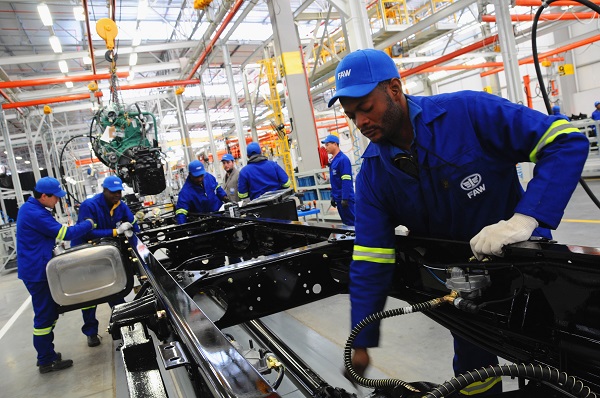Sub Saharan Africa 2017-2018 World Economic Forum Global Competitiveness Index (WEF GCI) shows a largely stagnant block compared to 2016-2017 results, latest survey that analyzed 137 economies has revealed.
While a little ground was gained between 2011 and 2015, the report notes that the progress has been eroded in the last two years.
However Ethiopia, Senegal, Tanzania, and Uganda have been identified as the only countries in Africa that have consistently shown growth for the past five years. The report identifies the deterioration of microeconomic environment as the main reason for the poor performance.
Another issue was rising inflation that grew by double digits in 2016 and remains above 10 percent.
Public finances are still being affected by past slower global growth and commodity prices, which—although picking up somewhat—remain well below the commodity price levels of the 2005–14 period. As a consequence, African public revenues fell from an average of 26.5 percent of GDP in 2006 to 17 percent in 2016, and many countries are running deficits.
In just two years public debt has risen from an average of 31.5 percent to 42.5 percent of GDP, and 22 of the 31 countries assessed by the GCI this year report higher debt than last year.These challenges are affecting the banking sector, with financial market efficiency continuing to decline.
Read:Kenya economy will withstand politics, official says
In addition, after four years of improvement, performance in the institutions pillar has worsened this year—particularly in South Africa, Lesotho, and Zambia—while elections in 2017 in Rwanda, Kenya, Liberia, and the Democratic Republic of Congo have increased volatility and uncertainty in the African business environment.
These negative trends have been partly compensated by improvements in infrastructure, health, technological readiness, and business sophistication, although Africa remains below the global average in these areas.
Standing at 45th place in the overall GCI, Mauritius remains the most competitive country in Africa with its main rivals falling back.
South Africa drops 14 places to 61st and Rwanda dropped seven places to 58thin global competitiveness. The most improved African countries year-on-year are Madagascar (121st, up seven), Gambia (117th, up six), Kenya (91st, up five), and Senegal (106th, up six), thanks either to an improved macroeconomic environment (Madagascar and Senegal) or to the efficiency of goods, labor, and financial markets (Gambia, and to a lesser extent Kenya).
Switzerland the US and Singapore are the top three most competitive countries in the world.

